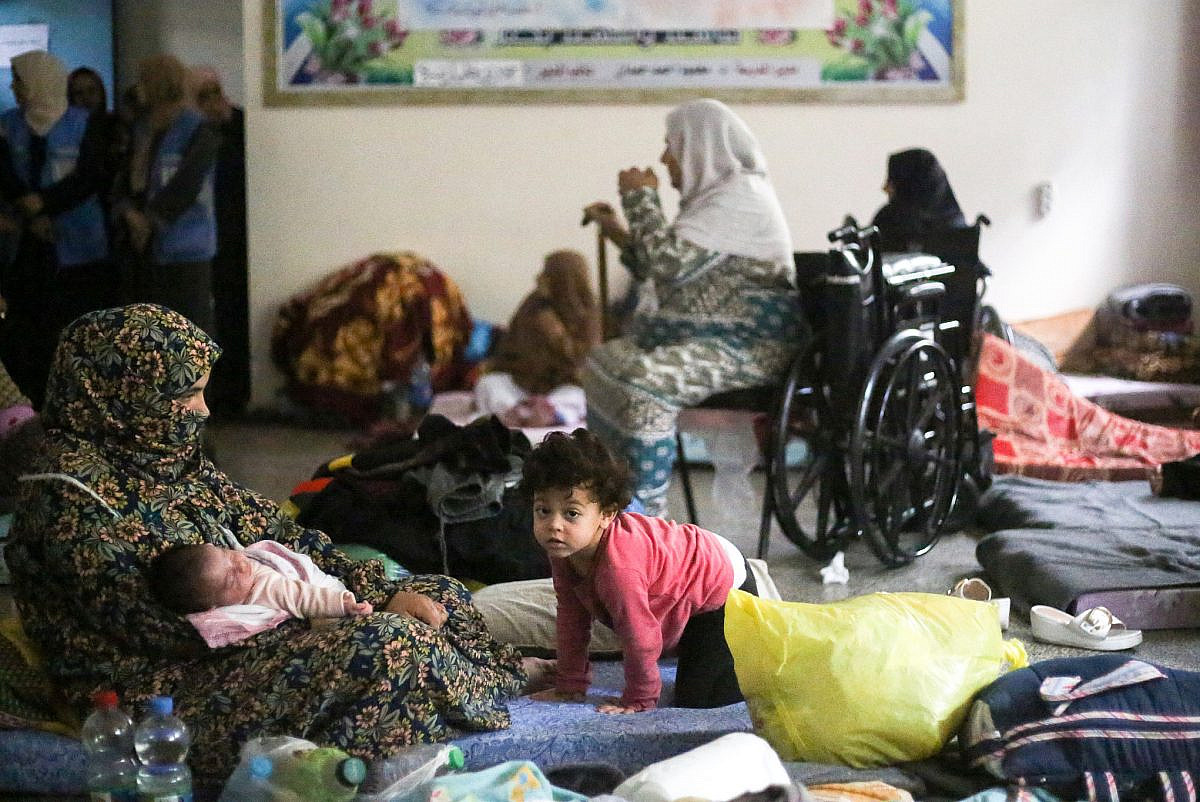In the chemistry lab at the Osama bin Zaid High School in northern Gaza, twelve families are sheltering from Israel’s brutal bombardment. Around 50 people have made the 30-square-meter classroom into their living quarters, using pieces of cloth to divide it into sections in order to provide some privacy for each of the families.
One of those families is my own: me, my wife, and our four children, together with my brother, his wife, and their four children. While the women and children sleep inside, the men sleep out in the yard.
Schools like this one, in northern Gaza’s Jabalia refugee camp, have been totally overwhelmed by displaced Palestinian families seeking shelter amid Israel’s assault on the besieged Strip, which has now entered its third month. We were already forced to flee our home in Jabalia’s Al-Qasasib neighborhood on Nov. 17 to escape the incursion of Israeli ground forces, unable to take clothes or food with us. And after trying unsuccessfully to seek shelter in an overcrowded school run by the UN Relief and Works Agency (UNRWA), we ended up at the government-run Omar bin Zaid.
My family has refused to travel south because we see all areas of the Gaza Strip being subjected to Israel’s relentless bombing campaign, and we know that nowhere is safe. We remain steadfast in our belief that staying in the camp is our way to confront the Israeli call for our forced displacement. We refuse to heed their instructions.
And we are not alone: despite the ferocity of Israel’s attacks and the growing control of its ground troops over northern Gaza, thousands of Palestinians men, women, children, and elderly people are still here. The Osama bin Zaid school by itself is housing around 3,500 people, while there are other refugee centers spread across the city.
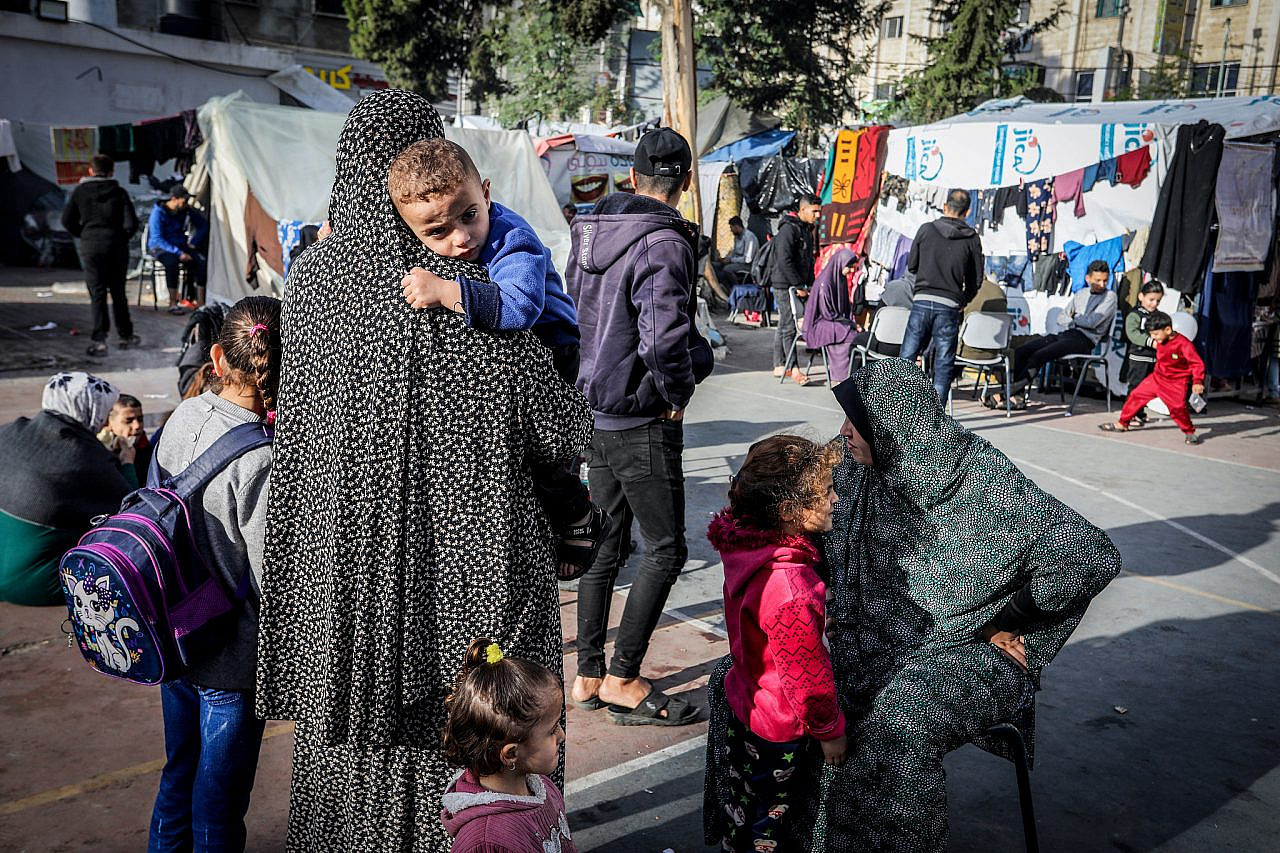
These shelters are far from being safe places, and are not immune to Israel’s attacks. The Israeli army has already directly bombed two schools in the Jabalia camp — Abu Hussein and Al-Fakhoura, both of which are run by UNRWA — where thousands of displaced people had sought refuge, killing dozens and wounding hundreds more.
Moreover, conditions in the schools are incredibly dire. There is no electricity and the bathrooms are barely usable. We drink non-potable water from groundwater wells, which is salty and contaminated with sewage. We are constantly getting sick, whether from gastrointestinal issues — likely as a result of the lack of clean water — or from respiratory illnesses.
We are sleeping without blankets or mattresses, and the nights are bitterly cold; we all lie together on a small piece of cloth without a cover.
I try to provide for my family’s basic needs by buying bread or even just flour. I wake up every morning at 4 a.m. and head to the only bakery in northern Gaza that still functions for a limited time each day. I stand in a long queue, usually for more than eight hours, and get half a bundle of bread — enough to feed only the children. Food for the adults is more limited. We eat once a day: a meal consisting of some vegetables such as tomatoes or cucumbers with za’atar.
“Various diseases are increasingly spreading among the displaced people due to the severe overcrowding,” Rami Abu Shaqra, the director of the Osama bin Zaid school, told me. He emphasized that this is particularly the case among children, who account for 1,600 of those sheltering at the school.
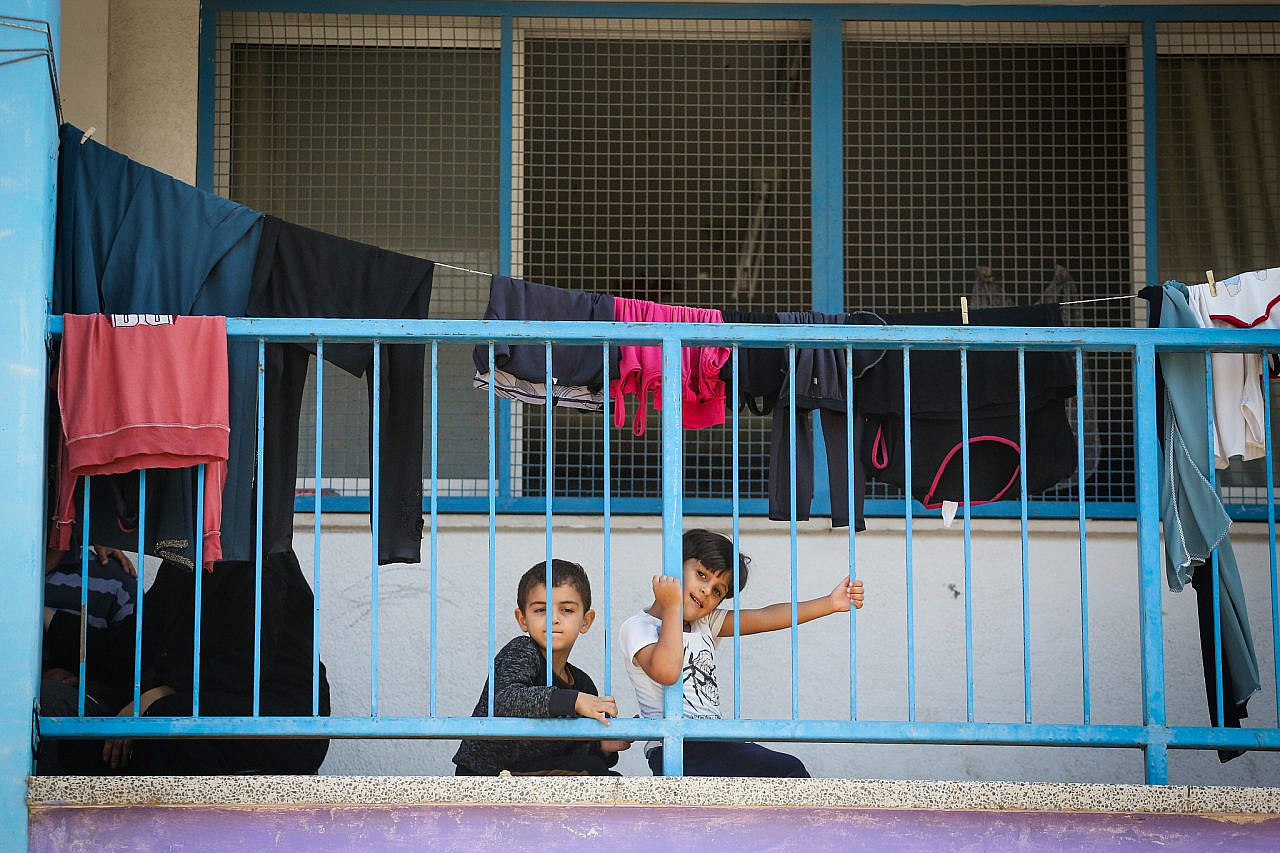
“Additionally, diarrhea and skin diseases are spreading rapidly because of the scarcity of clean drinking water and the lack of hygiene,” he said. “A person can wait an hour to use the toilets, assuming water is available.”
Abu Shaqra added that there are hundreds of babies sheltering at the school, as well as hundreds of pregnant women, in addition to people with severe disabilities and chronic illnesses. “These people need continuous medical care,” he said.
As winter sets in, the cold is likely to make living conditions even more challenging. According to Abu Shaqra, families were living in tents outside the school, but recent rain and wind have destroyed them, forcing the families to remain outside without even a tarp over their heads. “After all,” he said, “there is no more room to take shelter inside.”
‘I just want to go home’
Hanan Abu al-Rish, a 33-year-old Palestinian from Jabalia who is also sheltering at the school, lost her husband and two of her children in an Israeli airstrike targeting the camp’s main market. When I spoke with her, al-Rish was cooking lentil soup — with firewood, as there is no gas — for her remaining four children.
Al-Rish explained that after the army bombed a residential block adjacent to her house, around half a mile away from the school, she left on foot in the middle of the night with her children and came straight here.
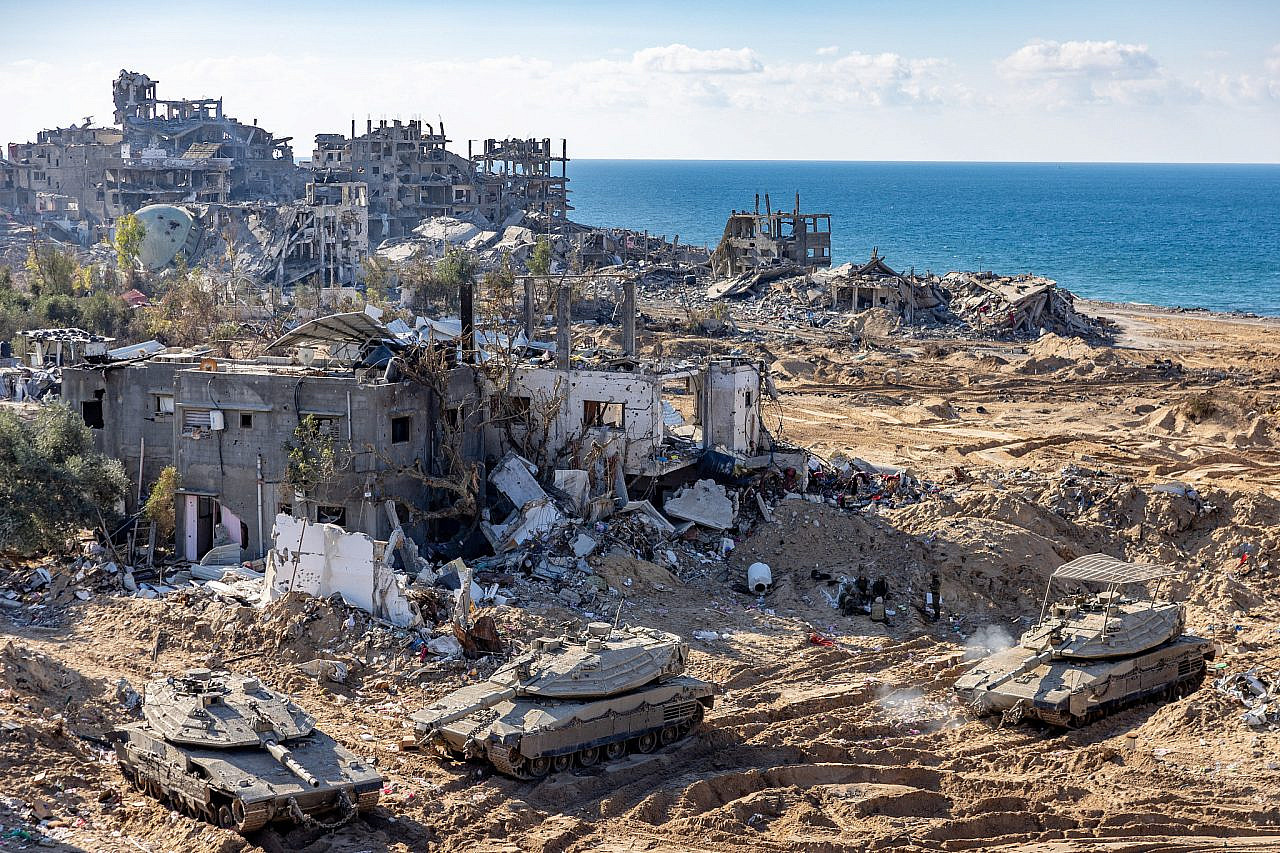
“When I arrived at the school, the situation was unspeakable,” she said. “It was bustling with displaced residents, and the ground was a swamp of sewage that had come out of the toilets and into the schoolyard.”
With great difficulty, al-Rish found a space for her family measuring two square meters in a classroom that was already housing 10 other families. According to her, she and her children eat one meal a day.
“Because the Israeli army directly targets schools that house displaced people, shelters are no longer safe in the north, especially in Jabalia,” she said. “The bombing has caused so many deaths and injuries. But we are steadfast, and we will not leave the camp despite the systematic extermination.”
Nader al-Shafei, a 32-year-old resident of Jabalia, was discharged from the Turkish-Palestinian Friendship Hospital — which is dedicated to treating cancer patients — after the Israeli army forced it to shut down in early November. He is no longer able to receive the life-saving treatment that he needs inside Gaza, and although he was due to travel to Egypt for treatment on Oct. 17, the outbreak of war means that he is forbidden from leaving. All he can do now is purchase his own medicine and painkillers.
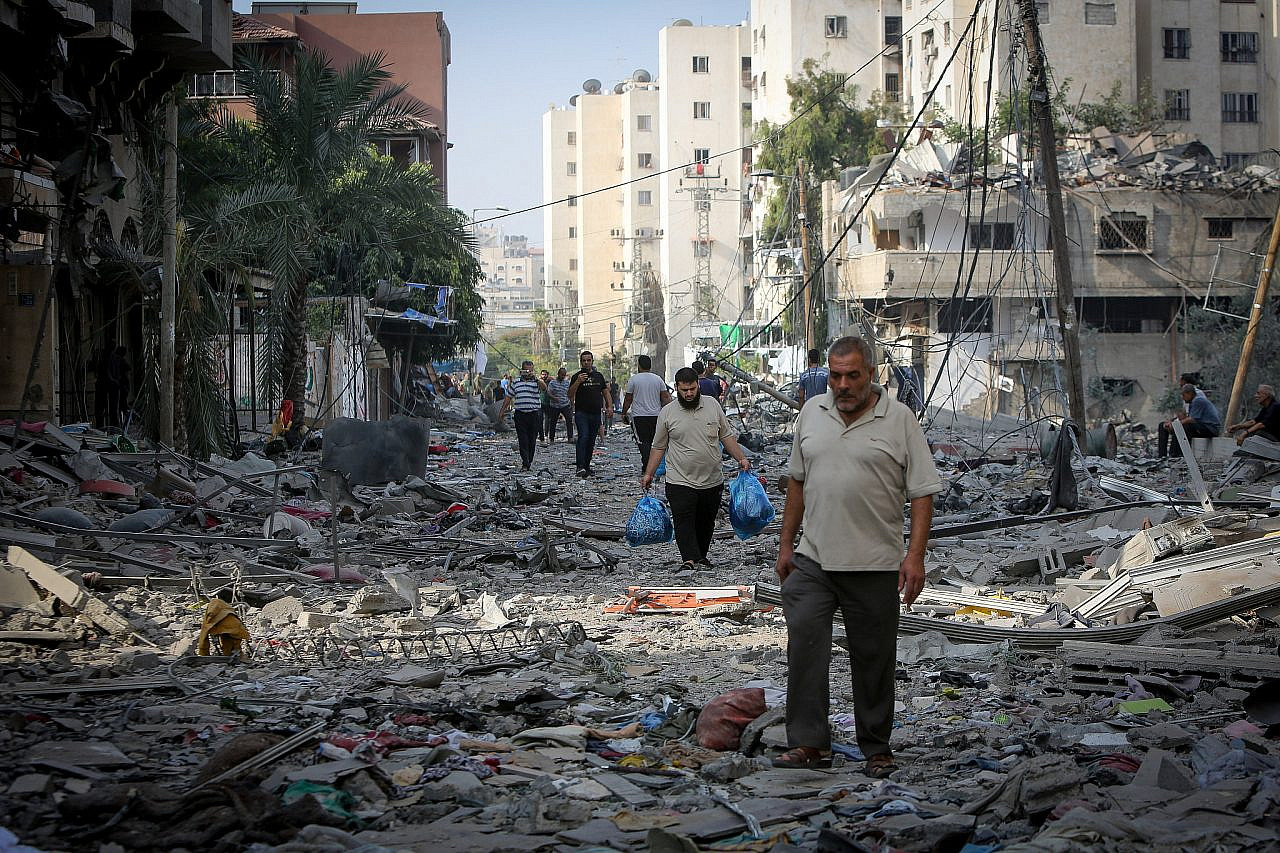
“I just want to go back to my home and live with my family,” he told me. “The refugee centers are not suitable for human living. There is no water, electricity, or food, not to mention the poor facilities, like the bathrooms and overcrowded classrooms.”
Al-Shafei, like thousands of residents of Jabalia, has refused to leave for areas in the south. Throughout all of Israel’s wars on Gaza, the residents of the camp have not left under any circumstances.
Lives of torment
At the entrance to the school’s second floor, I met 46-year-old Tahseen Kaskin sitting with his wife and four children on a worn piece of cloth. Kaskin lost three of his sons when the Israeli army bombed his home in Jabalia — a home that he worked for more than 20 years to build. The rest of the family were trapped beneath the rubble for more than five hours until civil defense crews managed to rescue them.
Describing the conditions at the school, Kaskin said the biggest problem is the toilets. “Because of the overcrowding, we wait a long time to relieve ourselves. There’s also a lack of fresh water. We only drink salty water that is unfit for human consumption. It’s not sanitary.”
Youssef Abu Touq came to stay at the school after fleeing his home in Beit Hanoun, north of Jabalia. The 37-year-old roams the streets of the refugee camp every day to collect water that is barely drinkable and firewood and cardboard boxes to sell to displaced people so they can prepare bread using primitive stoves. “We cannot bear to live in these shelters that are not set up for human life, not to mention the risk of death from the spread of diseases,” he said.
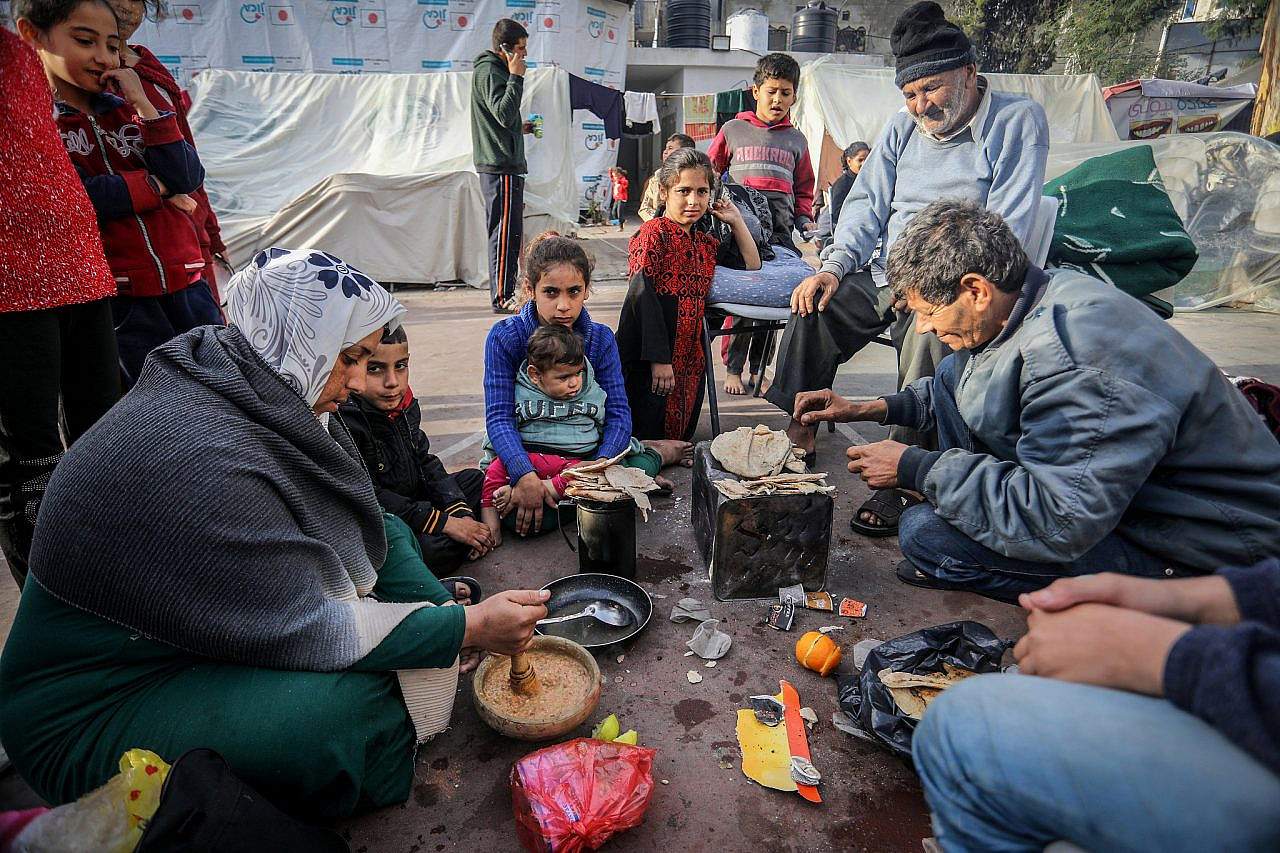
“The bombing continues around the clock without stopping, and the world silently watches on as Israel displaces people and destroys their houses with their inhabitants inside,” Abu Touq continued. He hopes that the upcoming period will bring a breakthrough in reaching a comprehensive ceasefire so that he and his family can return home to live in peace and security.
Safir al-Masri, 56, another who is seeking refuge at the school, was forced to leave his home with his family of 12 after the Israeli army bombed an entire residential block closeby. “I will not leave the camp!” he said defiantly, vowing to resist Israel’s attempts to force him and the rest of the camp’s residents to evacuate to southern Gaza.
“Even though some families have left Jabalia camp to go to the south, it is still crowded with residents who categorically refuse to leave it for several reasons — mainly the absence of alternatives, with Israel’s shelling target the Gaza Strip from north to south,” Al-Masri explained. “There are no safe areas in the Strip. In addition, many families still cling to their homes and lands and refuse to leave under any circumstances.”
Most read on +972
Ours have become lives of torment. The suffering our parents and ancestors faced during the Nakba of 1948 has become our reality. The sounds of shelling and explosions never subside. On the contrary, they are intensifying: shrapnel from Israeli missiles targeting nearby homes and mosques is causing damage to the classroom that is now our home.
In spite of all this, my family and I are still optimistic, and we try to hold on to hope that good news will come: that there will be a comprehensive ceasefire, not just a “humanitarian pause” for a few days, so that we can return to our home, even if it has been demolished. But we know that this return is uncertain.

